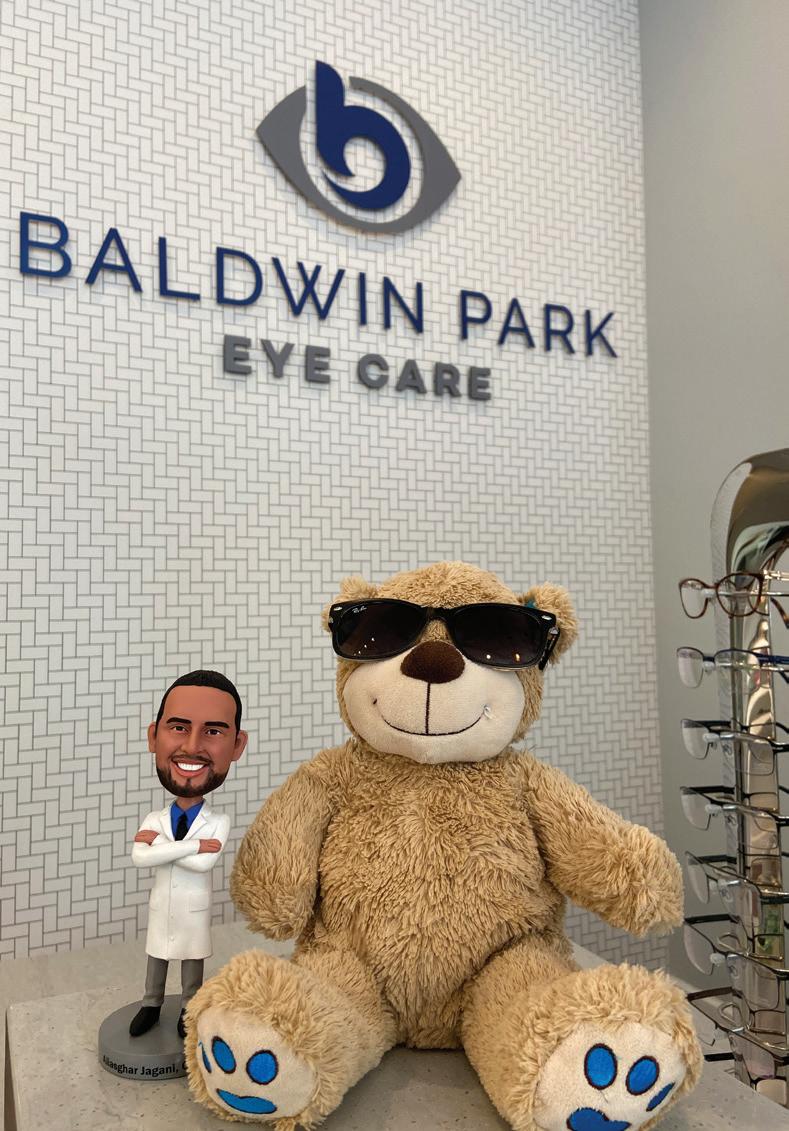
10 minute read
READY TO RECYCLE
Earth ambassador
DANIELLE HENDRIX ASSOCIATE EDITOR A ll it took for 14-year-old Jackson Fu to come up with an idea for a school service project was a simple glance at the Union Park playground.
The Glenridge Middle School eighth-grader was enjoying some time at the park with his parents in August when he noticed some plastic water bottles and bits of cardboard scattered on the ground.
Some simple recyclable items people had failed to properly dispose of suddenly were the inspiration behind a school community project he is required to complete as an IB student.
“It was just really obvious,” Jackson says. “People are just throwing away all this plastic, and also when I was seeing stuff, I had my school community project in mind. I thought maybe I could do something about this, because there’s so much that could be recycled. We could help out the ecosystem.”
Eighth-grade students in Glenridge’s IB program must decide on a community-service project in order to receive their IB diploma. Many students choose to complete volunteer hours with a charity or other organization of their choice.
Jackson, however, thought outside the box. As a scholar athlete, he juggles maintaining a straight-A grade average at school while dedicating a good amount of time to playing with the Orlando City Youth Soccer Club. Free time for him can be scarce.
“Jackson doesn’t have a lot of time,” says his mother, Leah Fu. “Many students with the project have to go find hours, and this is a more large-scale project that, instead of putting in hours regularly, he could manage and check in and make a big impact overall.”
He and his family make it a point whenever they’re out and about to
Glenridge Middle eighth-grader Jackson Fu was instrumental in helping to get recycling bins installed in three ROA parks.
Courtesy Kai Fu Jackson Fu is happy to have played a part in helping the environment around him.
pick up any recyclables they see on the ground and bring them home to place in their own recycling bin. Jackson noticed that although there were trash cans at the park, there weren’t any recycling bins.
“First, there was no option to recycle around here,” Jackson says.
RECYCLING 101
The recycling bins at High Park, Union Park and Enders Park are meant for plastic bottles, glass bottles and aluminum cans.
For those who recycle at home, did you know that one non-recyclable item in a recycling bin contaminates the whole batch? Here’s what you can and cannot place in your recycling bin.
For more information on what you can and cannot recycle, visit orlando.gov/ trash-recycling.
DO
n Cardboard: Flattened boxes n Glass: Bottles and jars; remove lids or caps n Metal: Tin, aluminum, steel and empty aerosol cans n Paper: Newspapers, junk mail, sheets of paper and drink cartons n Plastic: Bottles and containers labeled No. 1 through No. 5. Lids or caps can stay on.
DON’T
n Aluminum food pans n Food waste n Garbage n Plastic bags n Polyestrene foam cups and containers
Source: City of Orlando Solid Waste Division
“Mainly, the whole idea is to get recycling bins out there near the trash cans and make them pretty obvious.”
He decided to reach out to the Baldwin Park Residential Owners Association to tell them about his idea for implementing recycling bins. The ROA later followed up and invited him to give a short presentation at their meeting.
“I went to a board meeting and gave a little presentation, and they agreed,” Jackson says. “They did a lot of research and they came up with this design. … The design got sent over to the (Architectural Review Committee), and they denied it.”
Jackson had some help from his parents in finding a new design that would meet the ARC’s requirements, and he coordinated with the ROA board throughout the process.
“We went back and we picked a new design that looked a lot like the trash cans but that was completely blue, and they approved it,” Jackson says. “They’re going to be located at High Park, Union Park and Enders Park, basically where all the playgrounds are and the hot spots.”
DRS Construction of Central Florida completed the installation of the new recycling bins, each of which sits on a concrete pad. Accepted recyclables include glass bottles, aluminum cans and plastic bottles.
For the school project, Jackson had to put together a presentation and present it in front of a random classroom. His classmates and teacher enjoyed hearing about it, and he received a 100%.
“He seemed really impressed and he told me that he really liked what I did and that it was going to help the ecosystem,” Jackson says of his teacher’s reaction. “It’s just a great project overall. It’s a great feeling because over a long time this will help out the ecosystem a lot, and it will help make it even better.”
His parents — and the ROA board — were impressed with his drive and passion behind the project.
“Jackson decided to tackle it, and he learned a lot about how the process and presentations on an idea eventually become a reality, which was a great experience for him,” Leah Fu says. “He learned … when he started the initial inquisitions in August, he had to present (the idea) and was denied, and then continued working on a solution. It’s wonderful, it’s really wonderful. We’re very proud of him.”
Jackson said it’s important for people to realize the value of recycling, and they should take the time to place their trash or recyclables in the appropriate bins rather than discarding them on the ground.
After seeing some bags of dog feces in one of the bins, Jackson added that he wants people to know only recyclables belong in them.
“A recycling can is completely full of bottles and if one person puts in dog poop, the whole thing is contaminated and nothing can be recycled,” Jackson says. “We only get one Earth, and it just shows that the ecosystem will get better if people are into recycling and making the world a better place.” We only get one Earth, and it just shows that the ecosystem will get better if people are into recycling and making the world a better place.”
— JACKSON FU
“
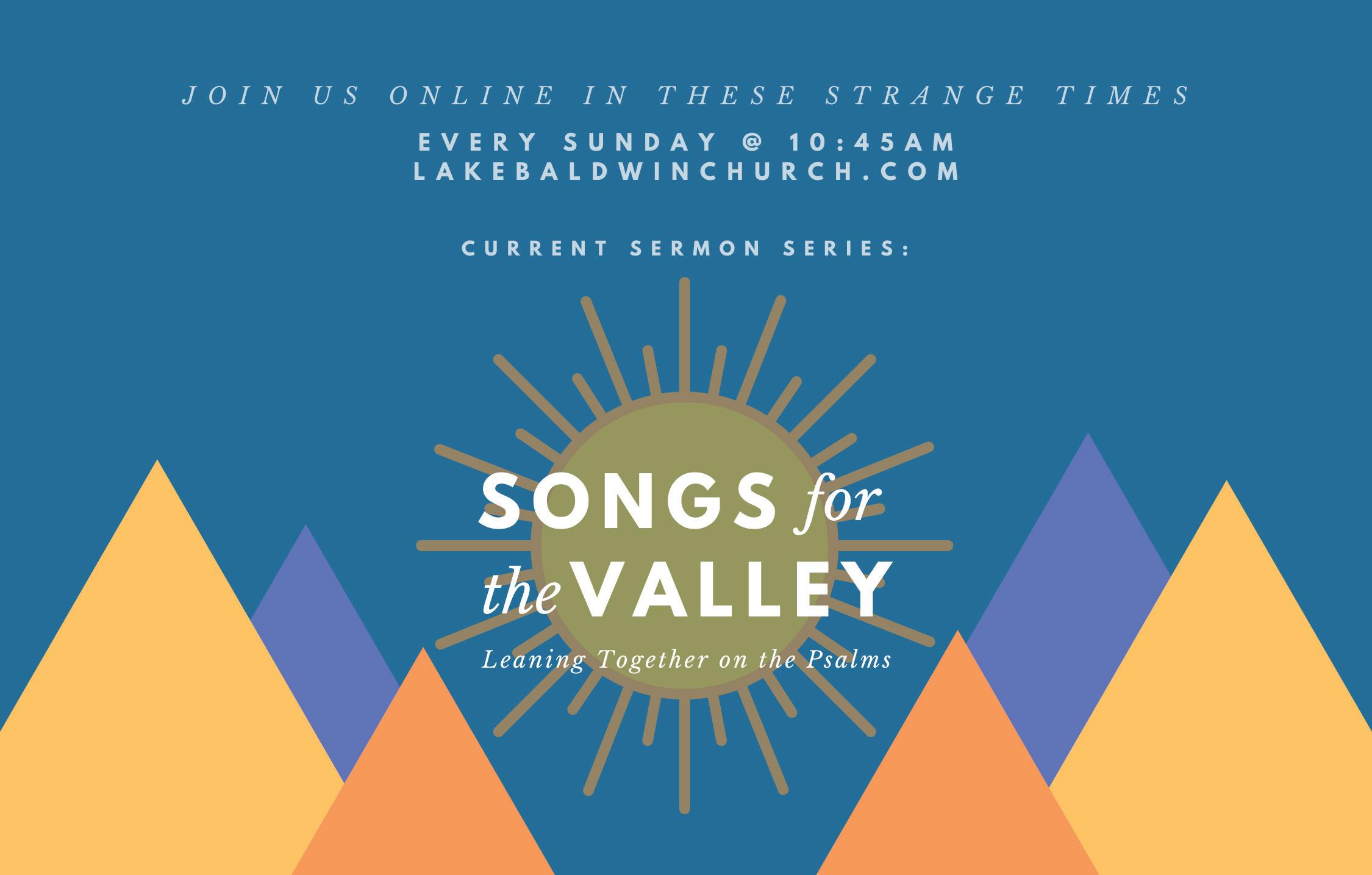
We are still here for you!
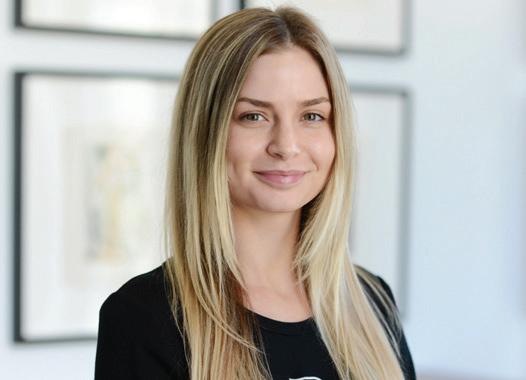
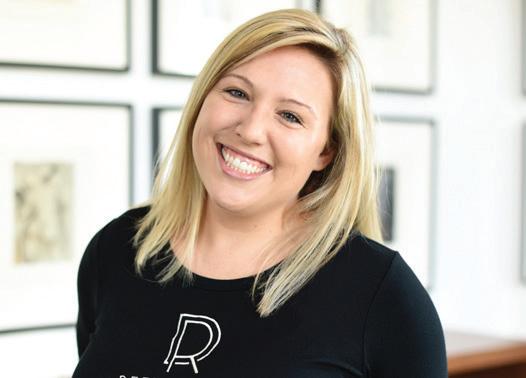
HEALTHY
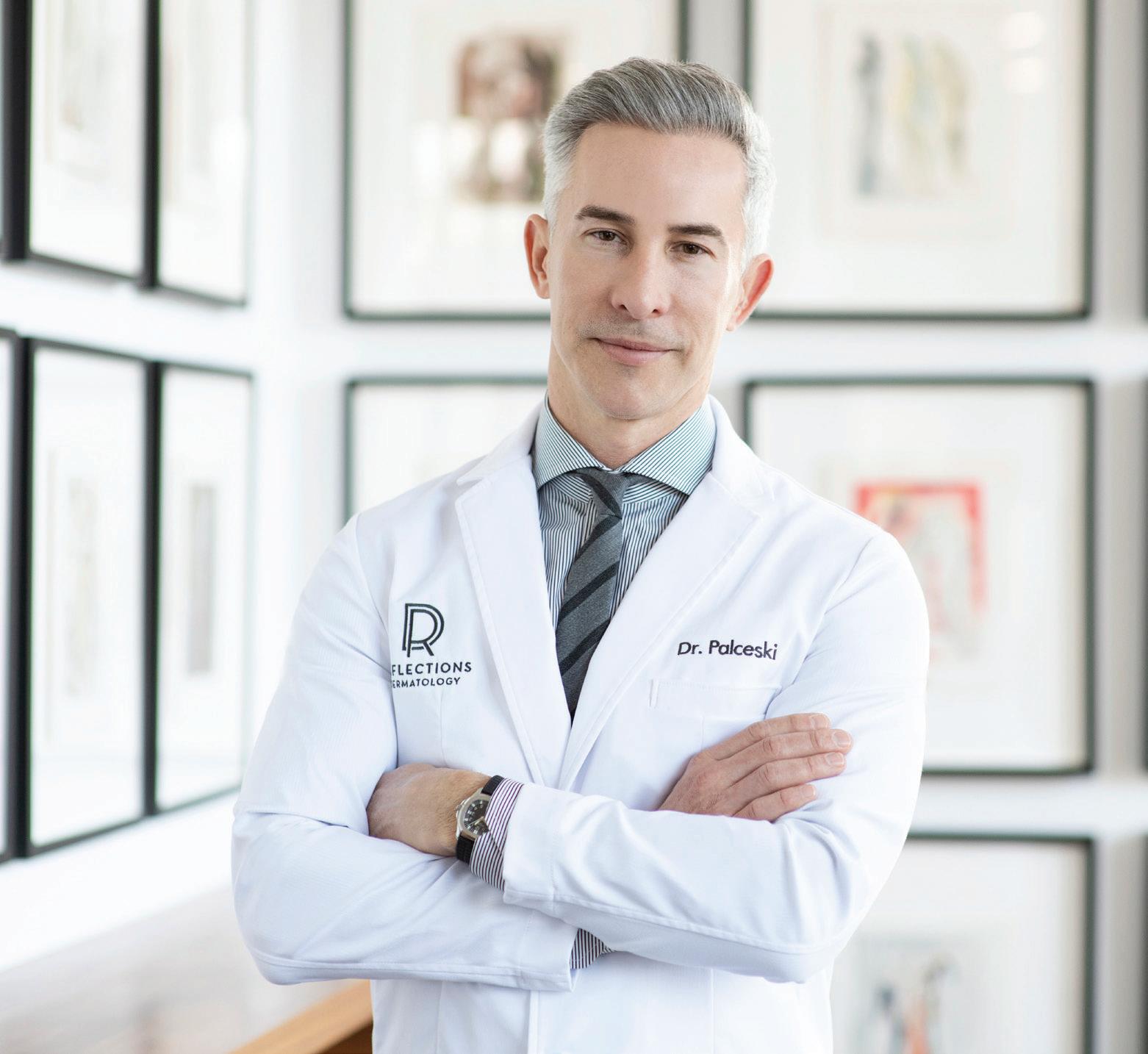
is just a phone call away!
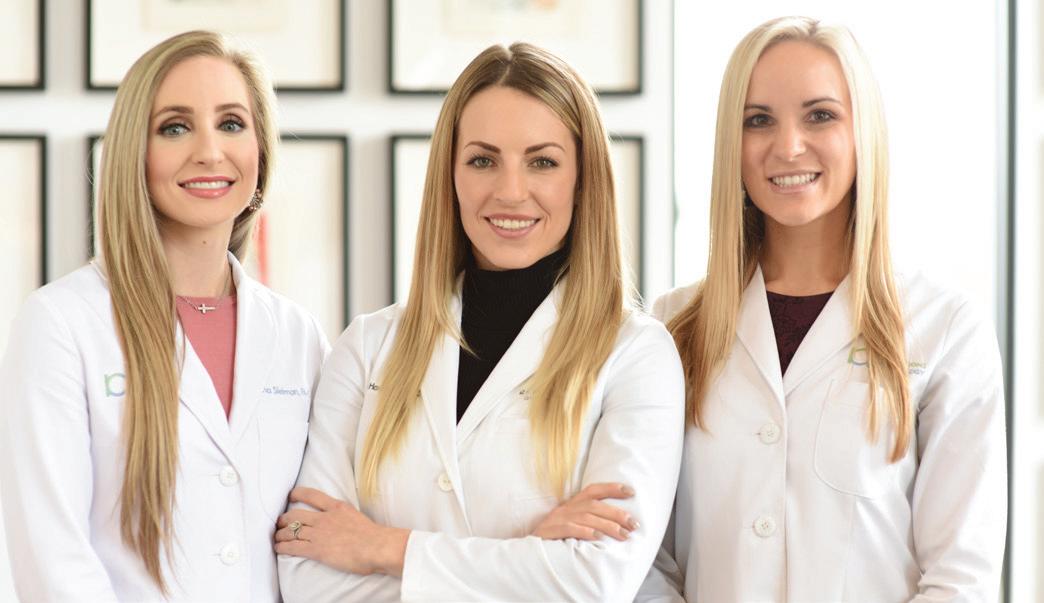
Where Great Skin Begins Since 2005, Dr. Palceski and his team have been helping Central Floridians love the skin they’re in. His office is truly a one-stop-shop for skin care for the entire family. Whether treating a teen with acne, surgically removing skin cancer, or erasing a wrinkle, they’ve got the perfect prescription for keeping your skin looking and feeling healthy for a lifetime. Frequently voted “Orlando’s Best Dermatologist”, Dr. Palceski is passionate about his patients and his practice.
Now Offering Tele-Derm Don’t want to come to the office? We’ll come to you via FaceTime or other type of telecommunication. Immediate appointments with Dr. Palceski or one of our medical providers are available and visits are covered by most insurance.
Baldwin Park | Winter Park reflectionsdermatology.com 407-895-8818
Orlando real estate in the time of COVID-19: What now?
The Orlando real-estate market was off to an auspicious start in 2020. Record growth continued, and interest rates remained low. Overall, the economic outlook was good, and buyer confidence was strong.
Then, the coronavirus came barreling onto the scene, shifting everyone and everything across the globe.
Uncertainty looms over many aspects of our daily lives, and some are experiencing a loss of employment. For those fighting for their own wellness — as well as our health heroes on the front lines — there are more immediate concerns than economic conditions.
So, what happens to Orlando-area real estate? How do buyers and sellers navigate the world of social distancing and virtual workplaces? Is it possible to transact safely, and can borrowers still obtain home loans at reasonable terms?
SAFETY FIRST
Real estate has been deemed an essential service in tFlorida, but that doesn’t mean Realtors and their customers should be any less diligent about flattening the curve and being responsible. Luckily for our industry, remote work and virtual everything are already well-known and used frequently. If you are planning to sell your home, you should know there are still many buyers actively buying and closing on homes with no sign of any changes to this activity any time soon. Yes, there is a large section of people in Central Florida who work at the theme parks or in hospitality, in retail and more who have been laid off. For many of those people, buying a home will have to wait. But the Florida real estate market still has many things going for it. People will continue to buy and to sell.
To stay safe, Realtors are using gloves and masks, conducting video and FaceTime property tours and adopting no-touch policies when showing homes. Video has been on the rise in real estate for many years, and virtual tours and floorplans are widely used. Some buyers are comfortable purchasing a home without actually entering it. For those who are not, sellers can allow buyers to view the property by themselves with their Realtor, as well as request gloves be worn, shoes be off and touching kept to a minimum with surfaces disinfected afterward. Don’t be afraid to be diligent in your requests for safer home showings.
WHAT ABOUT MORTGAGES?
As mentioned, those temporarily furloughed or out of work won’t qualify for home loans until they are back at their jobs. For those in essential services or with other occupations not directly impacted, there are still options. I spoke with Joe Onofre, loan originator with Caliber Home Loans of Central Florida, about what changes we are already starting to see and what to expect. One change many borrowers are experiencing is that “Non-QM” loan programs — otherwise known as Non-Qualified Loan programs — have mostly been suspended. Onofre clarified that
CHRISTINA RORDAM FLORIDA REALTY INVESTMENTS
Christina Rordam is a local Realtor and a member of ORRA’s Top Producer Club. For more, visit christinasellsorlando.com.
“a ‘Non-Qualified’ mortgage is simply a mortgage loan that does not meet the standards spelled out in the qualified mortgage rule adopted by the CFPB in 2014. This means a borrower that doesn’t meet qualified mortgage rules — such as someone who has only been self employed a year or perhaps has a recent foreclosure — may be in a holding pattern until things get back to normal. Certain types of loans, such as bank statement loans and/or loans for foreign nationals, fall into this category and also have been suspended in some instances. Although Fannie Mae and Freddie Mac haven’t yet changed their credit score requirements for borrowers, many lenders have adjusted their overlays. This means many lenders are simply making it their own requirement that borrowers have higher scores to qualify for loan products. In addition to higher credit score requirements, lenders are looking for better debt-to-income ratios. This doesn’t mean if you think your credit score is bad you should give up hope of purchasing a property. Speak with a mortgage lender — and possibly more than one — to know your purchasing power for certain.
WHAT ABOUT IBUYERS?
Almost immediately, iBuyers such as Zillow, Opendoor and Offerpad stopped purchasing homes — in some cases notifying sellers via email mere days prior to closing that they would not be proceeding as planned. iBuyers who touted themselves as disruptors to the real-estate industry have been found to be the cause of disruption for many families as of late. Sellers who chose to sell to iBuyers — frequently at sales prices under market value while also paying them fees as high 8% and 12% — thought their transactions were sure things and guaranteed to close. Many homeowners feel let down and disappointed by the swift way the iBuyers discarded them. Of course, it makes perfect sense for these corporations to drop these investment purchases and wait out the market. I anticipate we will see many of these platforms pivot to a referral-based model where they continue to fish for prospective buyers and sellers online and then sell the leads to real estate agents for a fee.
Bottom line: When the going got tough, iBuyers bowed out, at least temporarily. Realtors, however, continue to find ways to serve their local communities. We rise and fall alongside our cities and neighborhoods and will be here for you in good markets and bad. We will make it to the other side of this coronavirus crisis together.


